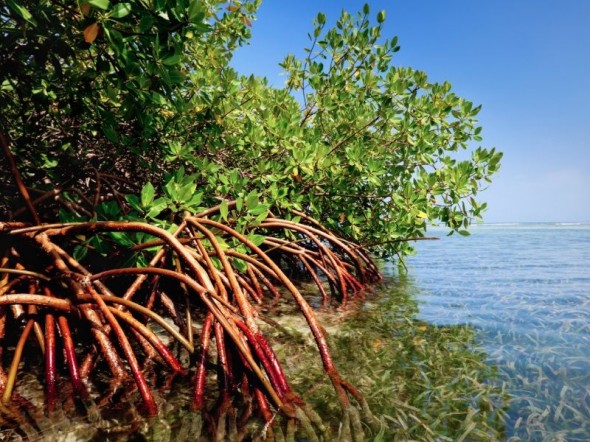 An international team of researchers including SeaMonster’s Emmett Duffy of the Virginia Institute of Marine Science has published a comprehensive new analysis showing that loss of plant biodiversity disrupts the fundamental services that ecosystems provide to humanity.
An international team of researchers including SeaMonster’s Emmett Duffy of the Virginia Institute of Marine Science has published a comprehensive new analysis showing that loss of plant biodiversity disrupts the fundamental services that ecosystems provide to humanity.
Plant communities — threatened by development, invasive species, climate change, and other factors — provide humans with food, help purify water supplies, generate oxygen, and supply raw materials for building, clothing, paper, and other products.
“The idea that declining diversity compromises the functioning of ecosystems was controversial for many years,” says Duffy, a marine ecologist who has studied the effects of biodiversity loss in seagrass beds. “This paper should be the final nail in the coffin of that controversy. It’s the most rigorous and comprehensive analysis yet, and it clearly shows that extinction of plant species compromises the productivity that supports Earth’s ecosystems.”
The team’s analysis shows that plant communities with many different species are nearly 1.5 times more productive than those with only one species (such as a cornfield or carefully tended lawn), and ongoing research finds even stronger benefits of diversity when the various other important natural services of ecosystems are considered. Diverse communities are also more efficient at capturing nutrients, light, and other limiting resources.
The analysis also suggests, based on laboratory studies of algae, that diverse plant communities generate oxygen — and take-up carbon dioxide — more than twice as fast as plant monocultures.
The team’s findings are consistent for plant communities both on land and in fresh- and saltwater, suggesting that plant biodiversity is of general and fundamental importance to the functioning of Earth’s entire biosphere.
Duffy says the team’s findings are important locally because estuaries like Chesapeake Bay are naturally low in plant diversity, making them especially vulnerable to ecological surprises resulting from loss of species. “Salt marshes and seagrass beds depend largely on one or a few species of plants that create the habitat structure,” says Duffy. “When such species are lost, low diversity means there is often no one else to take their place and the effects can ripple out through the community of animals, potentially up to fishery species.”
Read it here at ScienceDaily
Leave a Reply